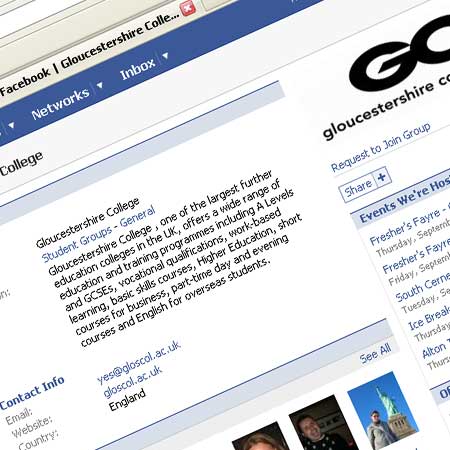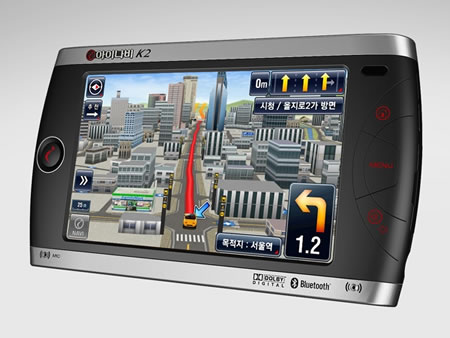At the recent JISC RSC SW HE Conference I took a fair bit of Qik video, here is one I took of Andy Ramsden of the University of Bath discussing what I was doing and Qik.
[vodpod id=ExternalVideo.503064&w=425&h=350&fv=] from qik.com
At the recent JISC RSC SW HE Conference I took a fair bit of Qik video, here is one I took of Andy Ramsden of the University of Bath discussing what I was doing and Qik.
[vodpod id=ExternalVideo.503064&w=425&h=350&fv=] from qik.com
Though the BBC may be having (heated) discussions with certain ISPs over the BBC iPlayer and has had issues with the iPlayer on the iPhone; it now appears that you will be able to use BBC iPlayer on your Nintendo Wii.
The BBC’s iPlayer video service will soon be available via the Nintendo Wii.
The video download and streaming service that lets people catch up with BBC programmes will soon be a channel on the hugely popular game console.
Early versions of the service will be available from 9 April but more polished software will be released as the service is developed.
You can already use the Wii with an internet service to access the internet, but certain sites such as BBC’s iPlayer have been unavailable until now.
This now means that you can watch some of the last seven days of BBC TV through your console. Yes you will need an internet connection (and a wireless connection at that) but you can use it to watch old TV.

So…
Well it does provide another reason why it might be purchased (instead of a “real” computer). If our learners are using consoles such as these not just for gaming, but also for watching video, viewing photographs, listening to music, even surfing the web; shouldn’t we try and ensure that we take this into account when we plan and develop e-learning and mobile learning activities and scenarios.
It might not be the “perfect” computer for e-learning or as mobile as a PDA, however for some learners it is the only device which they have substantial access to and therefore can not be ignored.
Nokia has confirmed it is working on a new phone which it hopes will match and exceed the functionality and capability of Apple’s iPhone.![]()
The Register reports
Nokia has confirmed that it’s developing a touchscreen-equipped handset to take on the Apple iPhone, and has shown off pictures of the upcoming phone to drooling onlookers.
It looks like it will support Java and Flash and include a DVB-H digital television tuner as well.
It seems like every new phone released with a touch interface is touted as the iPhone killer, however nearly all (well all) don’t live up to the hype.
My experiences with the LG Viewty certainly demonstrate to me that it is not an iPhone killer, it will be interesting to see if this Nokia “Tube” can meet the challenge.
I am currently at the JISC RSC SW HE Conference in Bristol today. I am trying out a new video streaming service, Qik.
Qik allows you to stream live video to the internet from your phone. Qik also records and stores the video so you can view it later.
Both the live video stream and the recorded videos can be embedded into a web page or a blog post in a similar manner to Youtube videos.
Unlike Shozu which allows you to post a recorded video from a phone online, Qik allows you to stream the video live. So as you film, it is available online on the web.
It is similar to Ustream or Stickam, however those services generally use a computer to capture and stream the video, Qik uses a phone. I am using a Nokia N95 with a 3G data connection to do this and works quite well. The Nokia N95 also has wifi capability so you can use wifi if you have that connectivity available.
You can see all my Qik videos here.
Nice article on some of the academic uses of Twitter which I found out about after reading a blog entry on Twitter from Lindsay Jordan.

The article by Dave Parry says:
I thought I would explain how I use it, specifically for academic related uses, and teaching.
Includes a really interesting observation on the way that learners used Twitter for classroom chatter.
The first thing I noticed when the class started using Twitter was how conversations continued inside and outside of class. Most of these conversations were not directly related to class material, but many were tangentially related. Because the students had the shared classroom experience when something came up outside of class that reminded them of material from class time it often got twittered. This served as a reinforcement/connection between the material and the “real world.”
The whole article is well worth reading if you are wondering about the academic benefits of Twitter.
In case you are still wondering what Twitter is…
One thing about Twitter is that you need to “do it” to really understand it.
Many of these ideas would also work for Jaiku (and in some cases with the threaded commenting could work better).
I have been using an Edirol R-09 for a few weeks now and have ordered some for our MoLeNET project (the Glossy project).
Eidrol have now released a new version the R-09HR.
From Engadget:
Edirol released its high-end R-09 portable recorder back in 2006, and now they’re taking things up a notch with the R-09HR, which can handle 96KHz recordings (up from 48KHz) and supports SDHC up to 8GB instead of the 4GB max of the old model. The recorder also includes a monitor speaker, remote control and playback speed control — a big win for fans of Alvin and the Chipmunks or for those who need to transcribe interviews, two camps which we conveniently find ourselves in.
It will cost £249.
BBC reports on how more than 25% of children between eight and eleven actively use social networking websites.
More than a quarter of eight to 11-year-olds in the UK have a profile on a social network, research shows.
Most sites, such as Bebo, MySpace and Facebook, set a minimum age of between 13 and 14 to create a profile but none actively enforce the age limit.
Ofcom’s survey of 5,000 adults and 3,000 children found 49% of those aged between eight and 17 have a profile.
Regardless of the rights and wrongs of this, by the time these children come to College or onto University, they will have been using and immersed into the world of social networking – unlikely I expect that they will be using Facebook or Bebo as who remembers Friendster?
However that they will be use to the concept of communicating socially online. I would also expect that they will also start to use these environments for working together on learning activities as well.
Obviously there are issues with putting personal and embarrassing information online as institutions and employers also have access to these sites and Google, but it would be a shame to focus on the negative aspects of these sites and forget the potential that these places have for learners to interact and engage with each other – in the same way they already do engage collaboratively for learning in the physical social areas within our institutions.
As I write this I am sitting in the cafe area of my college and there are learners here drinking coffee and talking, I know some are talking about non-learning stuff, but there are others who are talking and discussing what they just did or what they need to do.

We provide physical social environments for our learners to socialise and engage with each other, is it too much to ask to provide access to similar social environments which are online?
BBC Click reports on the evolution of social networking.
Recent reports of social networking’s demise may be slightly premature.
Sure, some users are completely fed up with receiving friends invites, being “bitten”, “poked” and indeed having sheep thrown at them.
And there has been a 5% slowdown in new UK users to the larger social networks, Facebook and MySpace, between December 2007 and January this year.
But Alex Burmaster, an analyst at Nielsen Online which compiled the figures showing the decline, says: “The slow down in social networks is being somewhat exaggerated. It’s a natural form of any growth that we see in the online eco-system.

Adobe have released an online photo editing app which they have called Photoshop Express.
You shot it — now do something to it. Make it pop. Make it impossible to ignore. Upload, sort, polish, and store up to 2GB of photos. All for free. Resize, tint, distort, and more — add your mark to all your images. Then show them off on Adobe® Photoshop® Express or your Facebook page.
A bit of a warning, this is not an online version of Photoshop. This is an online photo editing application which Adobe have called Photoshop Express.
It reminds me a lot of iPhoto and many Mac users will find it pretty simple and easy to use and very familiar, but obviously Photoshop Express also works on Windows PCs.
Unlike (the real) Photoshop which has a pretty steep learning curve this has a pretty simple interface which works quite well.

Certainly worth a look as both an online photo editor but also as an online photo storage tool.
Do you have a GPS or satnav and still get lost?
Could it be because the maps on satnavs look like maps rather than the place where you actually are?
Though I think GPS devices have a place in learning and especially mobile learning they do have a requirement that the learners understand maps and the concept of maps and am not sure that all do.
In Korea we are seeing the future of satnav with the map been replaced by a 3D view of the road you are on.

Thinkware announced the launch of its premium navigation device ‘iNAVI K2’ in Korea market, which is equipped with its dynamic electronic map of 3D space representation ‘iNAVI 3D’.
Adopting 8GB SDHC memory card and 256MB of RAM, the iNAVI K2 provides useful information on the 3D environment structure through a 4.8-inch WVGA(800 x 480 resolution) LCD in a photo realistic way.
Of course with initiatives like Google Street View in the US, eventually we may see (in the UK) photo-realistic 3D environments on satnav devices.
This all means for learners that they will find using GPS devices much easier to use for location based learning activities.